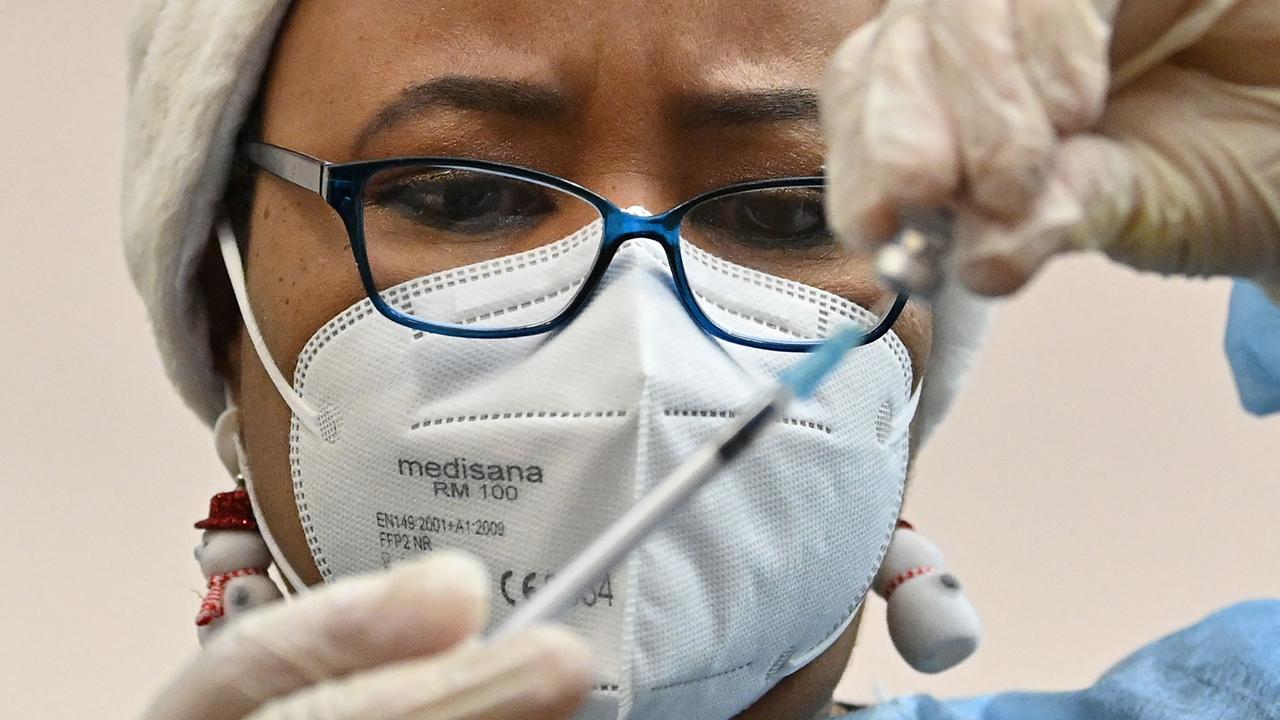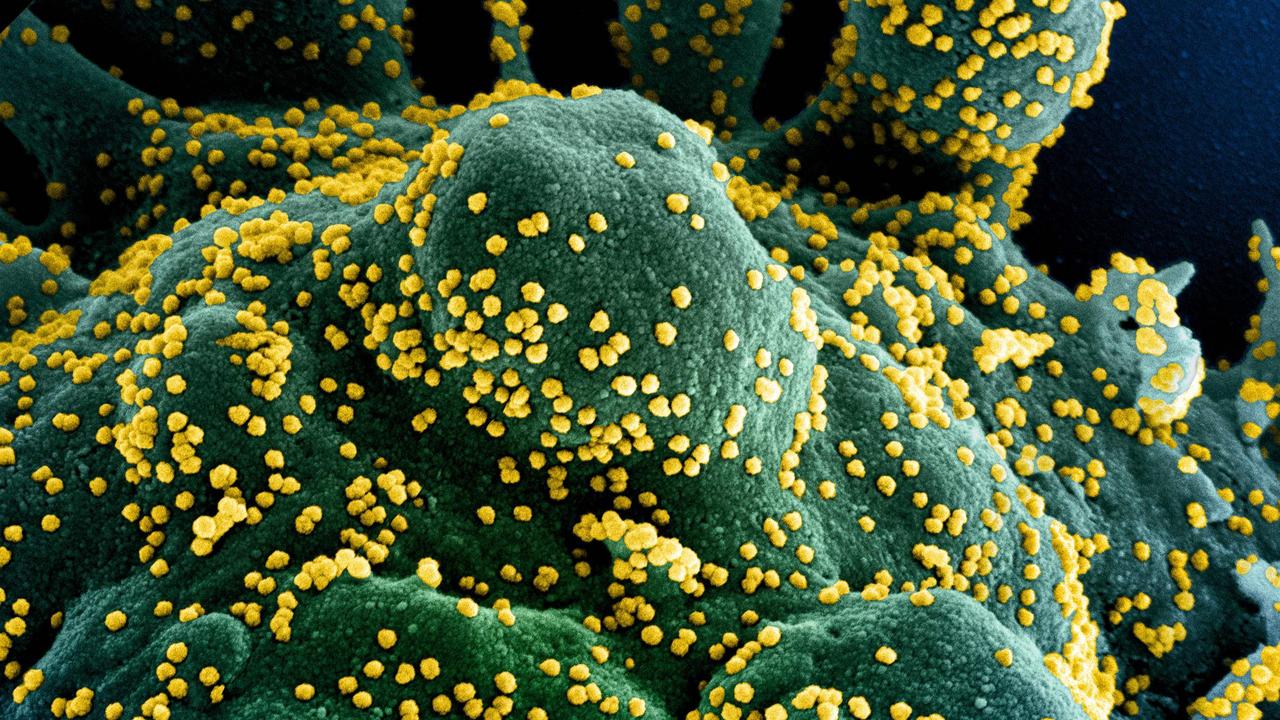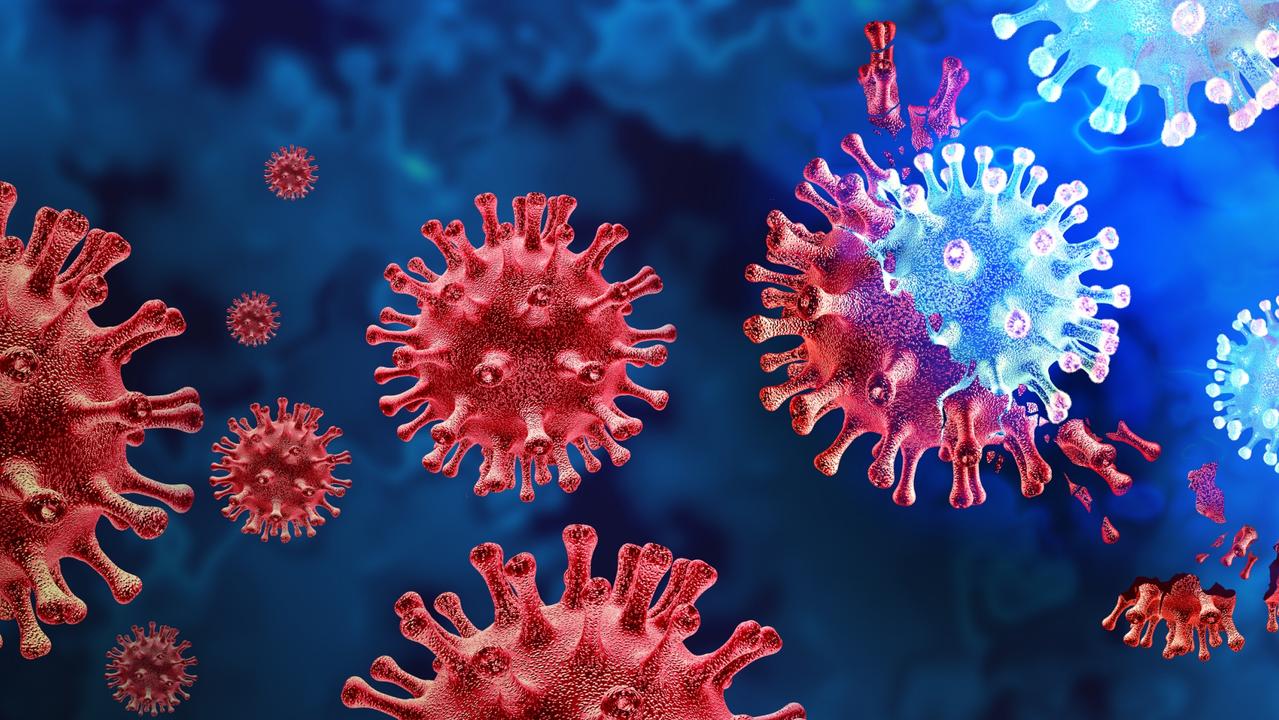Kids and Covid: What you need to know for each age group
What you need to know for each age group as the Delta strain increasingly infects young people, and carries a worrying complication.
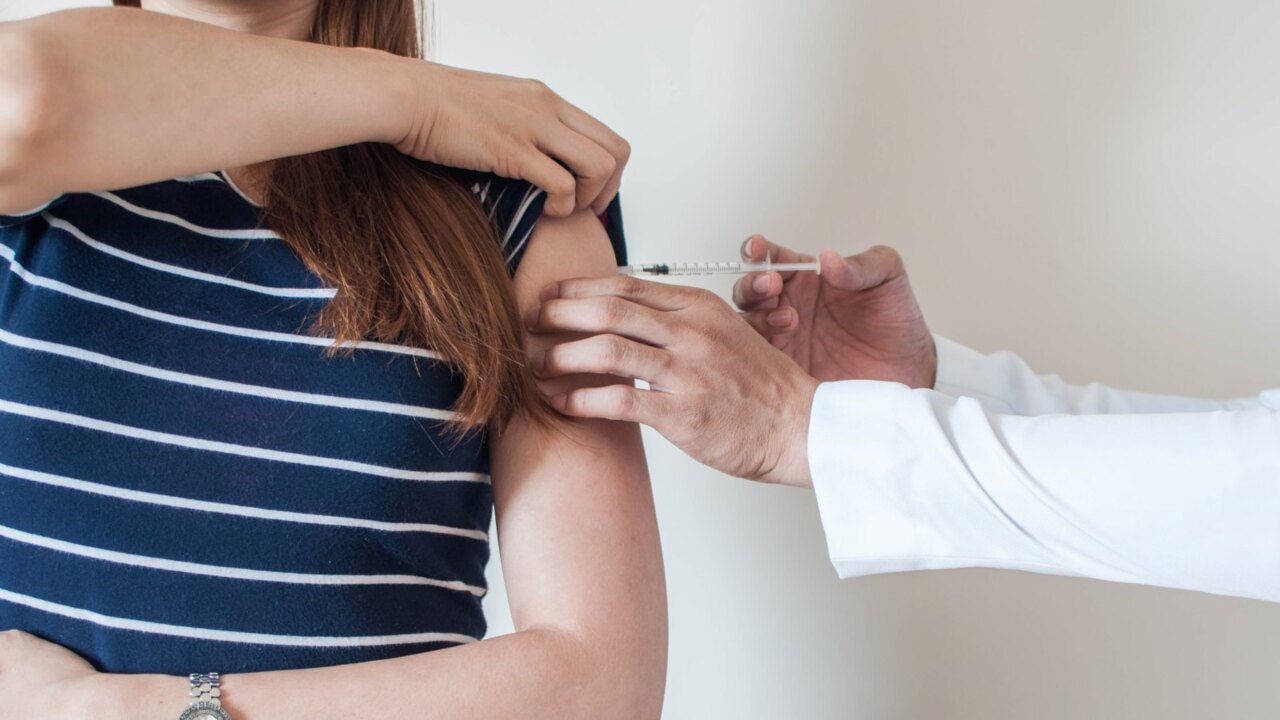
With more than 200 children aged nine years old or under in NSW diagnosed with Covid-19 over the weekend, focus is turning to the question of vaccinating Australia’s younger citizens.
With vaccination targets for reopening of 70 or 80 per cent not even including under-16s in the equation, parents are asking if their kids will be at risk when lockdown ends.
And when can they reasonably expect that children in their respective age groups – babies, preschoolers, primary schoolers, tweens and young teens – will be approved for the jab?
In Australia, vaccines are not available yet to most children, but an increasing number of older Australians are vaccinated.
That means as a percentage of cases, Australia will see more children infected with the Delta strain as fewer older people will catch Covid.
NSW chief health officer Dr Kerry Chant said she “firmly believed” NSW needed to vaccinate all 12 to 15-year-olds, once 16-year-olds had received doses.
Green Party leader Adam Bandt sees it as a matter of urgency that an additional two million Australians – the nation’s 12 to 15-year-old population – get vaccinated.
So far, no vaccine has been approved for children aged five to 12 in the US, although other countries have either authorised vaccines for adolescents and young children or are considering them.
Canada approved the vaccine for use in 12 to 15-year-olds in May, while countries including Sweden, France and Singapore approved its use in children in June.
Spain announced in June its plan to vaccinate children before they return to school, and Italy approved Moderna for teens in July.
While children were less likely to be hospitalised for Covid, statistics are rising for Delta variant hospitalisations of young people and one expert warned about long term effects.
Dr Andrew Miller, former Western Australian Australian Medical Association president, said overseas data showed children were vulnerable to the lasting symptoms of “long Covid”.
He said in many cases it was severe enough to interfere with learning or daily activities.
“Parents would be right to be very concerned, particularly in the context that we don’t yet have a vaccine for all 12 to 16 year olds [in Australia], only the vulnerable ones,” Dr Miller said.
Kids now ‘the frontline’
Labor’s health spokesman Mark Butler put it more acutely, saying children and teenagers were “now the frontline in this disastrous third wave”.
The US and the UK report surges in infections among children, as well as a rare but fatal complication for young people of the Delta strain and their vulnerability to it because Delta was a “pandemic for the unvaccinated”.
RELATED: ‘Live with it’: PM’s plan to reopen Australia
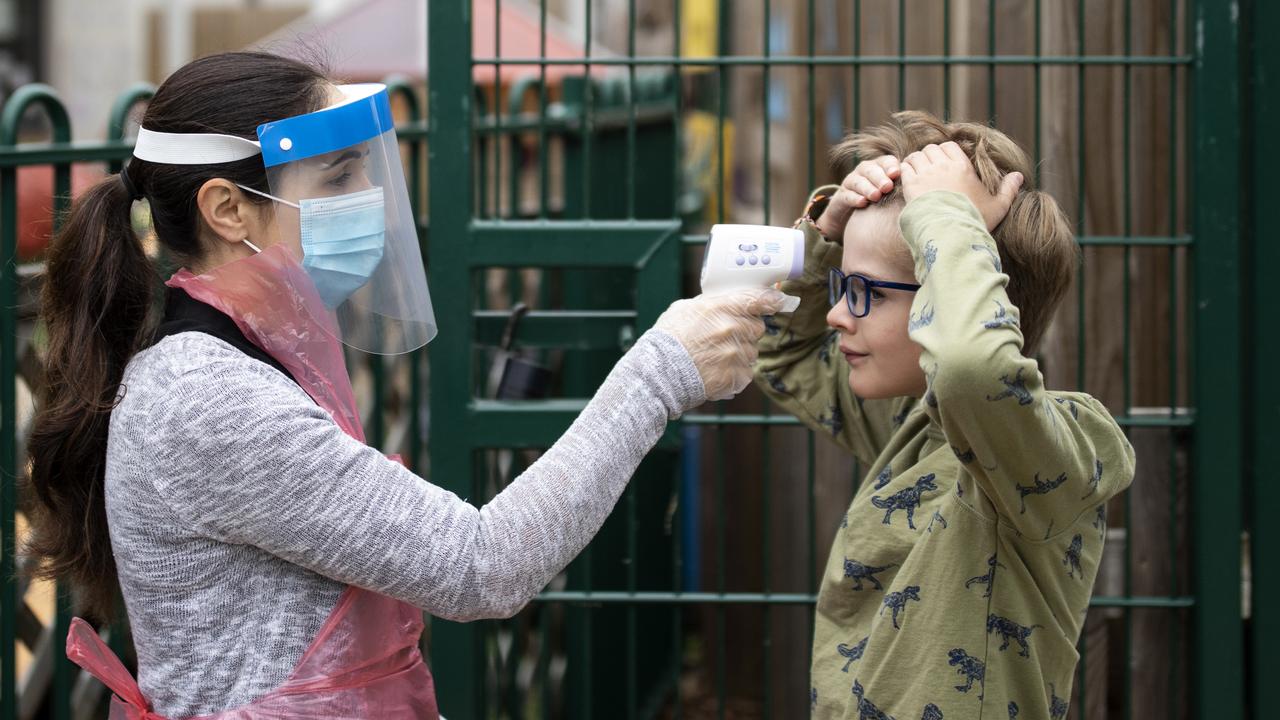
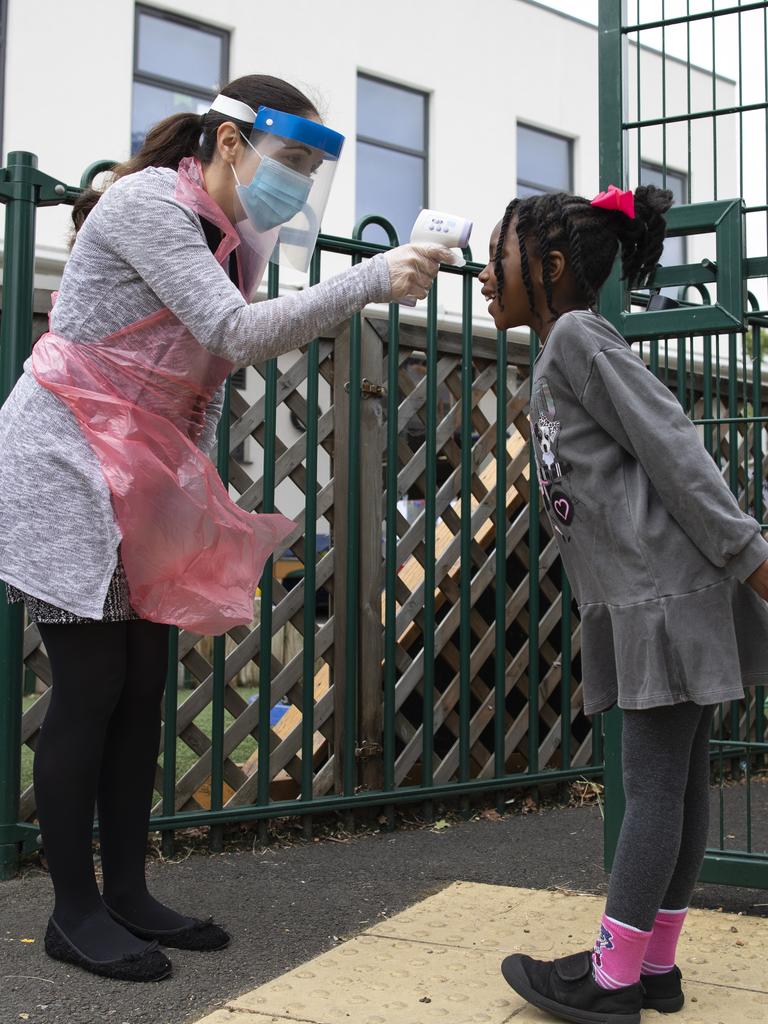

RELATED: Infection fears for Sydney suburbs
As the Delta variant infected dozens of kids in Victoria and NSW and even a three-year-old in Canberra, Prime Minister Scott Morrison said the plan to vaccinate Australia’s children, possibly at schools, was “well under way”.
However, while Australia’s medical regulator has approved Pfizer for use in 12 to 15-year-olds, the Australian Technical Advisory Group on Immunisation (ATAGI) has so far only recommended it for vulnerable youth.
That means the roughly 220,000 with underlying medical conditions, and Aboriginal and Torres Strait Islander children.
The group is reviewing data from overseas, and a decision on widening the recommendation to include all 12 to 15-year-olds is expected in coming weeks.
Infections rising among kids
Covid-19 cases are surging among those 19 years and under in NSW and account for about a third of all cases.
As new daily cases in NSW topped 800 on both Saturday and Sunday last weekend, children nine and under made up 204 of them, along with 276 persons aged 10 to 19.
About a quarter of NSW’s locally acquired cases in the last week were people in their 20s and on Sunday, 195 of the 830 cases were people aged 20 to 29.
On August 21, it was reported that Australia-wide there had been 7747 cases of Covid in children under the age of 19.
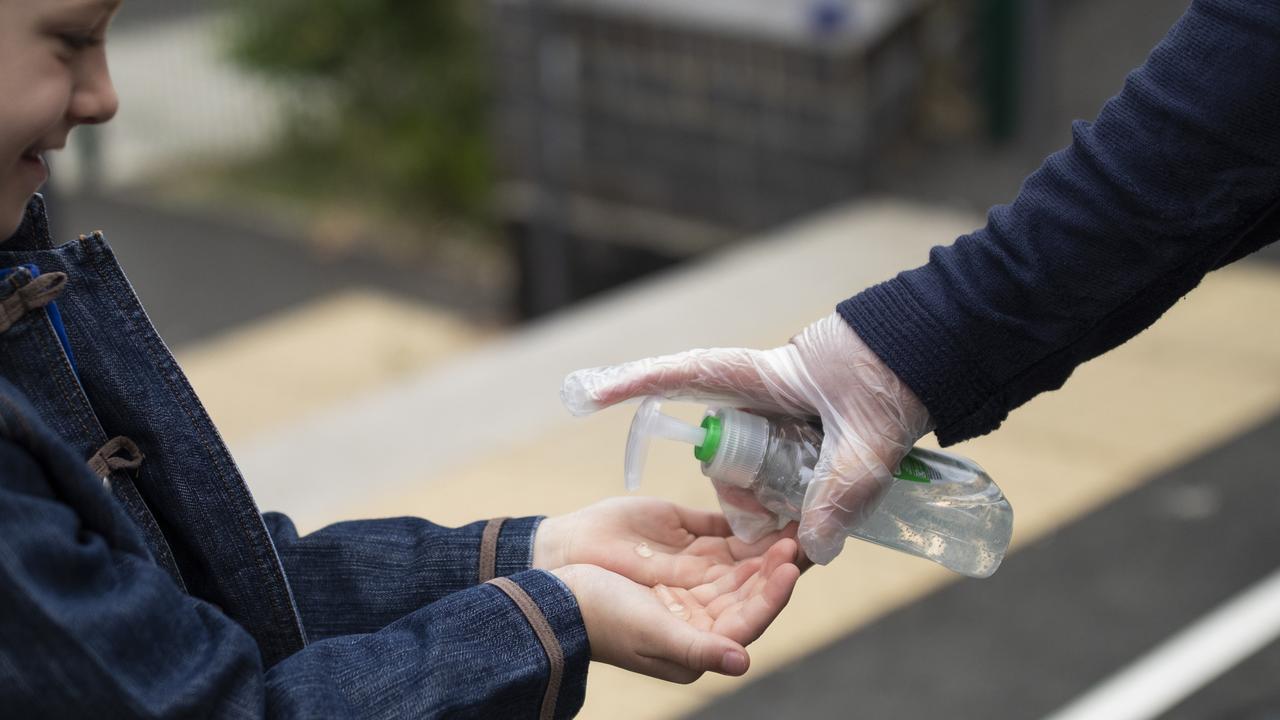
On August 19, it was reported that 11 people between 12 and 17 were being treated for Covid in hospital.
Only one of them has died, a 15-year-old boy who died of meningitis but had Covid at the same time.
Last week, Victoria’s Health Minster Martin Foley confirmed the state had 56 cases in children under the age of 9, and 55 are aged between 10 and 19.
In the ACT, where the case of a three-year-old was recorded, the median age of the 67 active cases last week in the nation’s capital was 19.5 years.
Other countries are vaccinating kids
The Greens’ Adam Bandt said the fact many other countries had already approved the vaccine for widespread use in children meant Australia should follow.
Mr Bandt said children and teenagers must be included in the country’s vaccination targets – which currently only count those aged 16 and over.
To date, 27.5 per cent (almost 5.7 million) of that eligible population has been fully vaccinated.
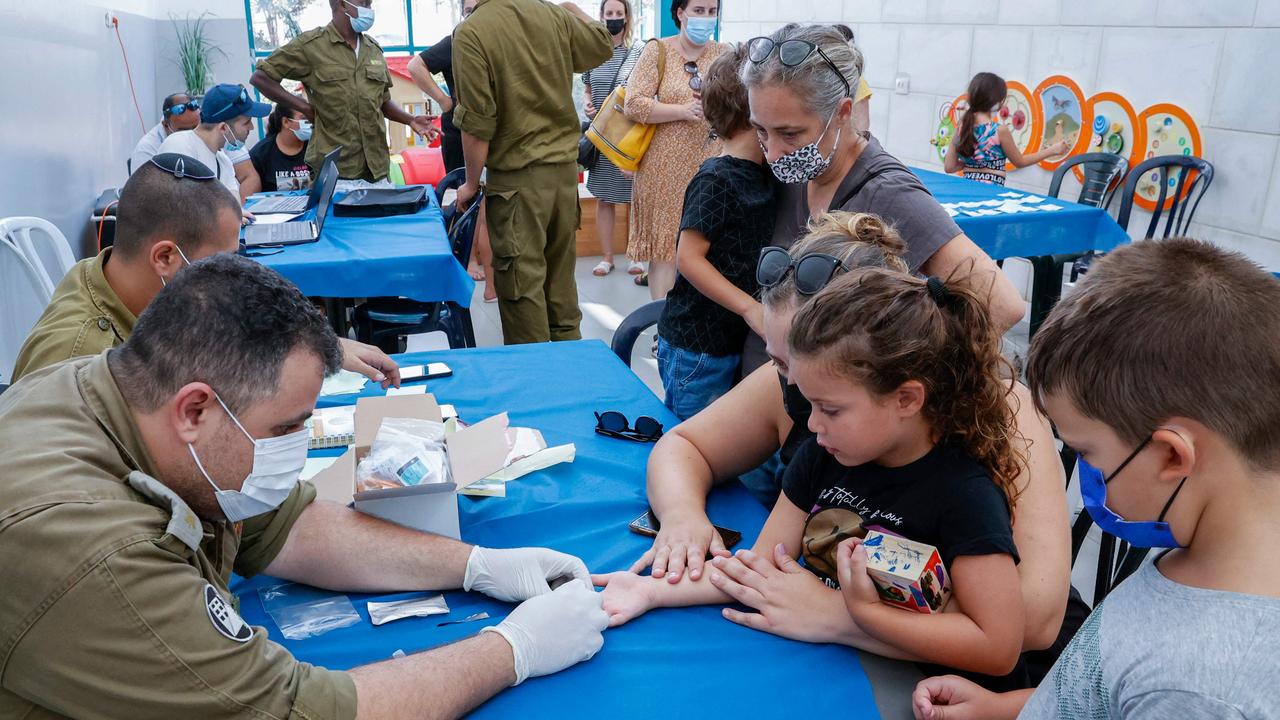
“There will need to be a significant effort put in for children otherwise (we) will not meet the deadline,” Mr Bandt said.
Children are at extremely low risk of death and serious illness.
In the US, 430 children have died (out of 72 million children).
In the UK, 25 children have died (out of 12.7m), and almost half of those had complex pre-existing health conditions.
But because of their higher risk of catching and transmitting the disease to the vulnerable, the Centre for Diseases Control (CDC) in America is making the case that children should be vaccinated.
How to protect tweens and teens?
American Academy of Paediatrics Committee on Infectious Diseases vice chair Sean O’Leary says Delta is up to 60 per cent more transmissible.
“We’re in this situation where things are opening up while this is more predominant,” Professor O’Leary said.
“There are a lot of reasons for concern for all of us in general. Cases have jumped for kids specifically.”
In the US, where most kids under 12 aren’t eligible for a vaccine, the CDC reports only 30 per cent of eligible children up to the age of 18 have been immunised.
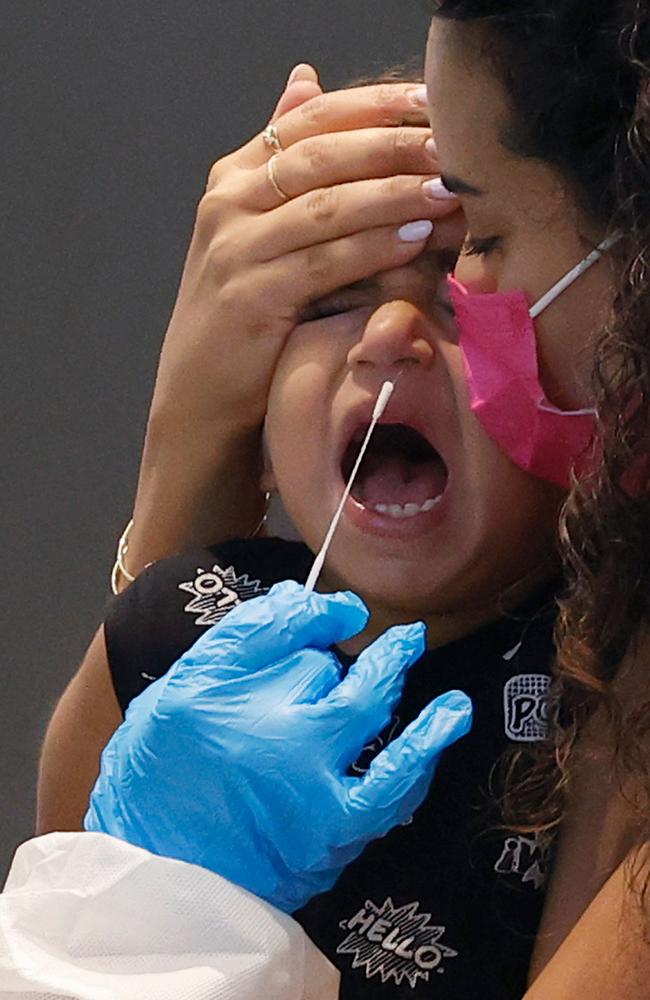
RELATED: Andrews flags grim stat in new Victoria cases
“That’s pitiful,” said Jennifer Lighter, New York University paediatric infectious-disease specialist at Langone Health said.
Covid-19 and the flu in children have “the same kind of morbidity (but) if it’s preventable, I don’t want any child getting it”.
“The most important thing that we can do is everyone who is eligible to be vaccinated, be vaccinated,” Dr O’Leary said. “That is the best way we can protect society and children, including younger children.”
Masks for kids as young as two
“Be thoughtful about what you’re doing, where you’re going, and outdoors is safer than in. In larger crowds, wear a mask,” Dr O’Leary said.
“And that applies to kids down to two.”
Allison Bartlett, a paediatric infectious-disease specialist with University of Chicago Medicine said the best way to avoid the Delta variant was just what we’ve been told so far. “Kids playing outdoors together at a playground is reasonable without masks now, even if they’re not vaccinated,” she said.
“But when crowds get bigger or move indoors, masking by everyone is important to keep kids safe.”
There are growing numbers of child Covid cases in hospitals in the US, particularly in counties with low vaccination rates.
US kids with Delta infection on life support
Experts from Kentucky Children’s Hospital (KCH) analysed data on children Covid patient admissions in the US where up to mid-August 400 children have died from Covid.
A very rare, but serious complication from Covid among a handful of children was called multisystem inflammatory syndrome (MIS-C),
This caused different body parts to become inflamed, including the heart, lungs, kidneys, brain, skin, eyes or gastrointestinal organs, the University of Kentucky News reported.
KCH physician-in-chief Dr Sean McTigue said MIS-C required oxygen support and of the ten kids treated in Kentucky “it’s not just a one or two-day hospital stay”.
“Most of them stay in the hospital for quite a long time, and require essentially life support, the most extreme therapy to keep them alive,” he said.
Dr McTigue said that while children infected during the pandemic’s first had little to no symptoms, the Delta wave was different.
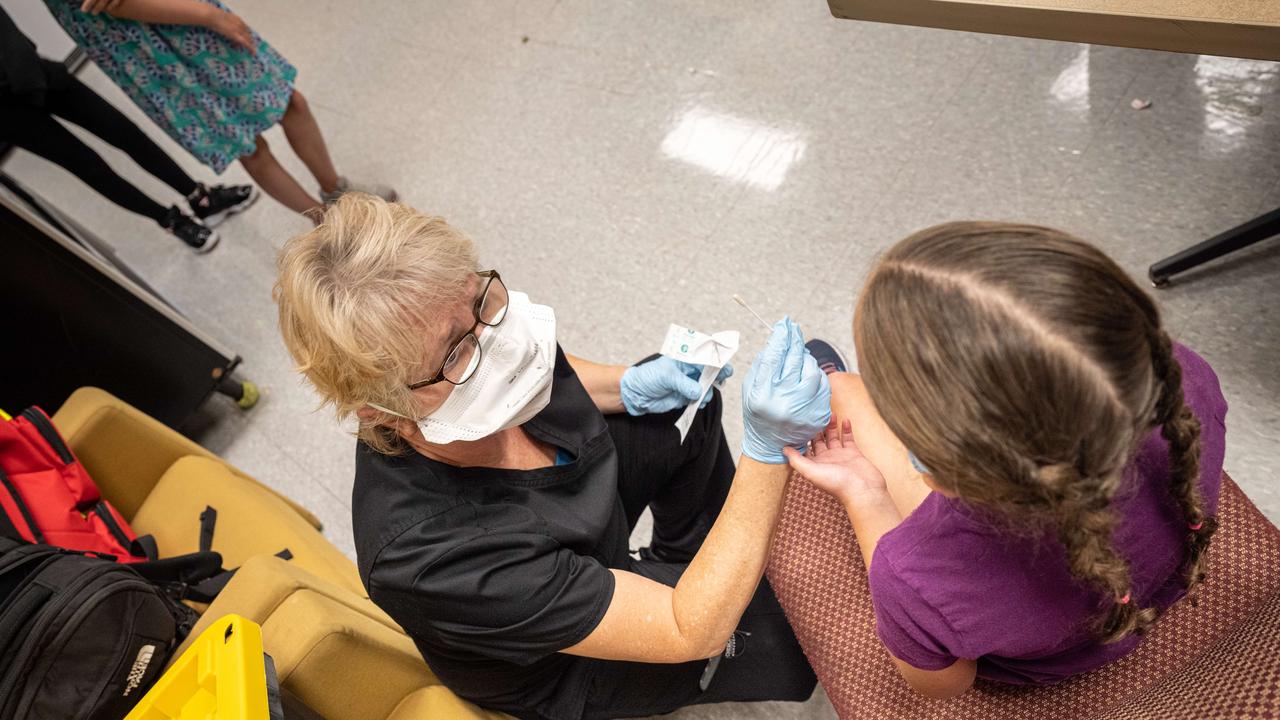
“The number of children who are testing positive make up as much as 70 per cent of total cases,” he said.
“But we know that many children are not being tested across the country. Children under 12 aren’t immunised at all.”
He said it was older children, in particular teenagers who were eligible for immunisation, who were more likely to get severe Covid.
These tended to be teens with immune-suppressing conditions, cancer or who were obese, and African American teens who were at higher risk of Covid and MIS-C.
Dr McTigue described the Delta strain as “a pandemic of the unimmunised” and advised parents to get their children vaccinated.
“The vaccines are almost 100 per cent effective at preventing death and severe illness with hospitalisation in the ICU with life support,” he said.
United Kingdom
In the UK, there has been an increase in hospital admissions in young people with Delta, says Prof Fiona Russell, the director of child and adolescent health at the University of Melbourne.
Two UK studies of the Delta variant found infections of young people were driving the exponential growth of cases in England.
The Delta surge over two weeks in May and June mirrored the projected Delta growth in Australia, with a reproduction rate of 1.44 (it was 1.3 in Australia on August 20, and expected to rise).
The doubling time of cases was 11 days, comparable with NSW which had numbers in the 400s early last week, the 600s late last week, then the 800s at the weekend.
RELATED: Baby infected with Covid in ICU
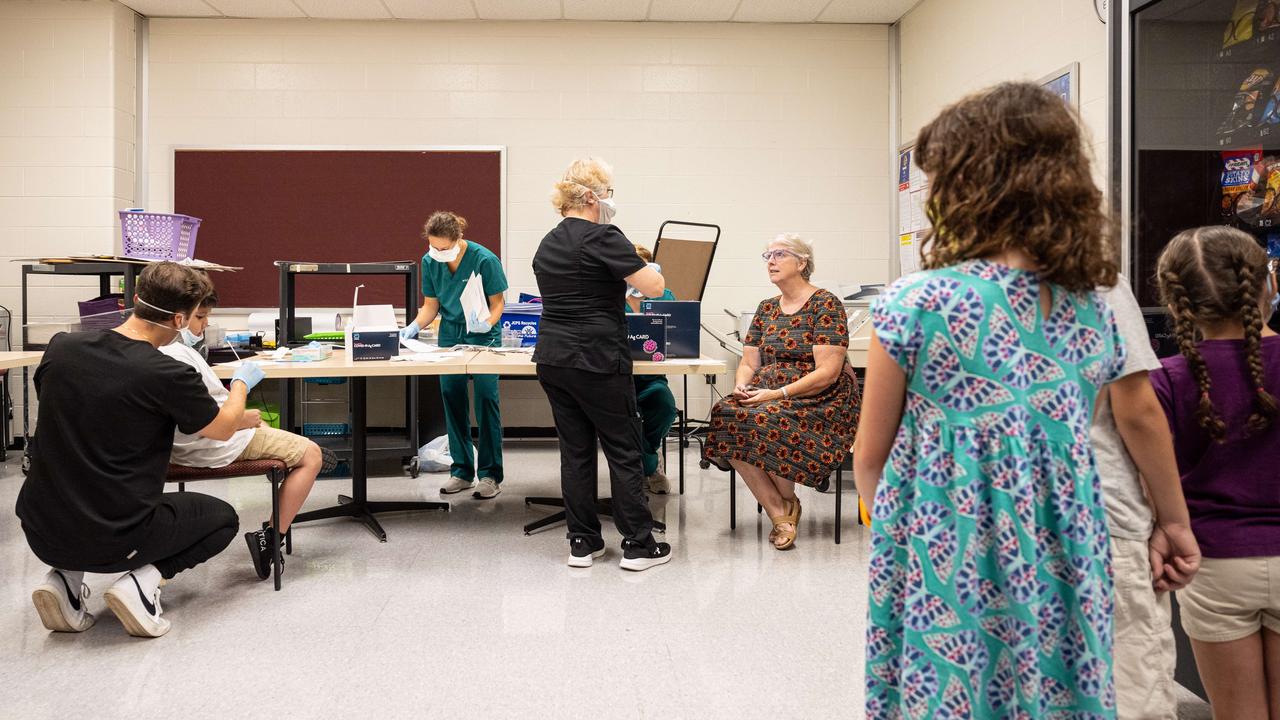
RELATED: Reason Delta hits the young
Young people were behind Britain’s case surge, with a five times higher rate among children aged five to 12, and young adults aged 18 to 24 than people 65 and older.
A study by REal-time Assessment of Community Transmission-1 (REACT-1) showed that children and adults under 50 were 2.5 times more likely to become infected with Delta.
Of 3105 deaths from all causes among the 12 million or so people under 18 in England between March 2020 and February 2021, 25 were attributable to Covid-19.
This a rate of about two for every million people in this age range, a study by Joseph Ward of the University College London Great Ormond Street Institute of Child Health found.
None had asthma or type-1 diabetes, and only about half had conditions that put them at a higher risk than healthy children of dying from any cause.
So when will Australia’s kids get vaccinated?
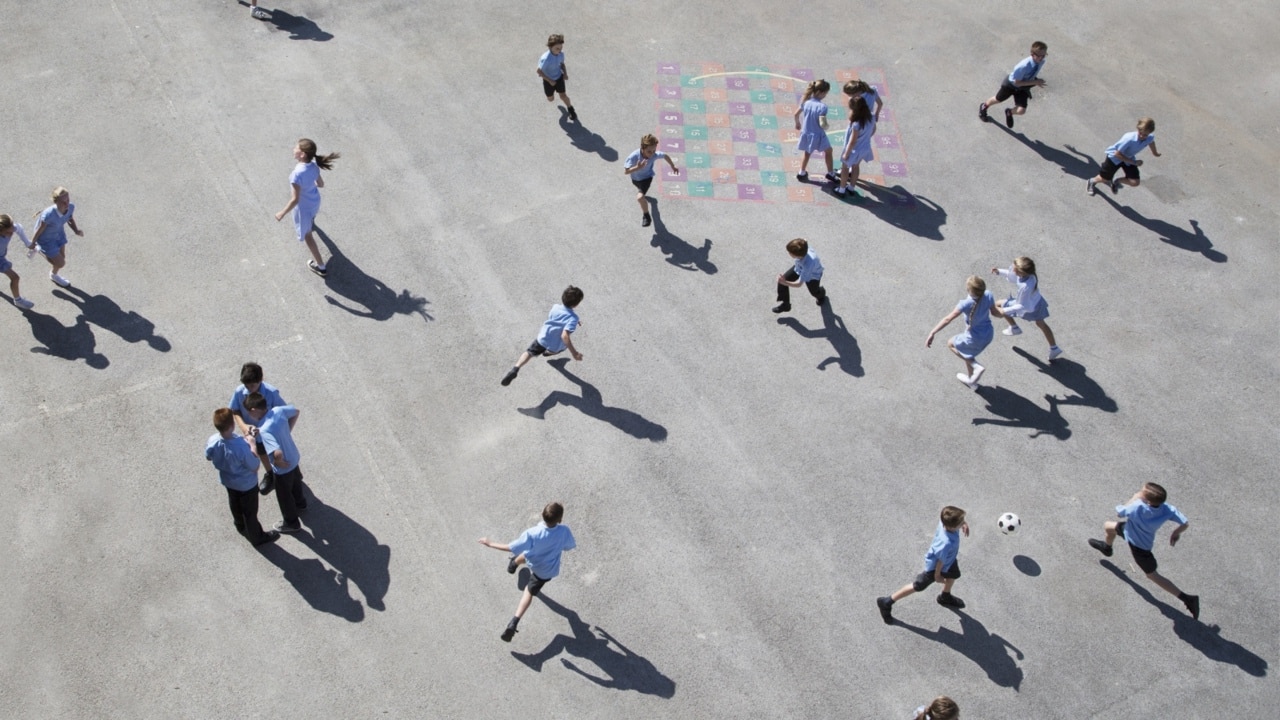
12 to 15 year olds
NSW health authorities want all children between 12 and 15 vaccinated immediately given the deteriorating situation in the state.
But approval is still yet to come from the national immunisation body, which says it could take months.
The Therapeutic Goods Administration (TGA) has approved Pfizer for this age group.
But the Australian Technical Advisory Group on Immunisation (ATAGI) only recommends children who are Aboriginal and Torres Strait Islander, live in remote communities or have underlying conditions receive the vaccine.
Although only a small number of 12 to 15-year-olds are eligible to receive Pfizer, Dr Kerry Chant urgently wants the rollout expanded.
“I firmly believe that we need to get in and vaccinate our 12 to 15-year-olds at the moment,” Ms Chant said last week.
“We vaccinated the 16-year-olds [but] I’m keen to get into the 12 to 15-year-olds personally.
“I believe in targeting school-aged children, in particular high school children, very quickly because we know they contribute to transmission.”
On August 2, ATAGI said recommendations for all other children in this age group would be made to the federal government in “coming months”.
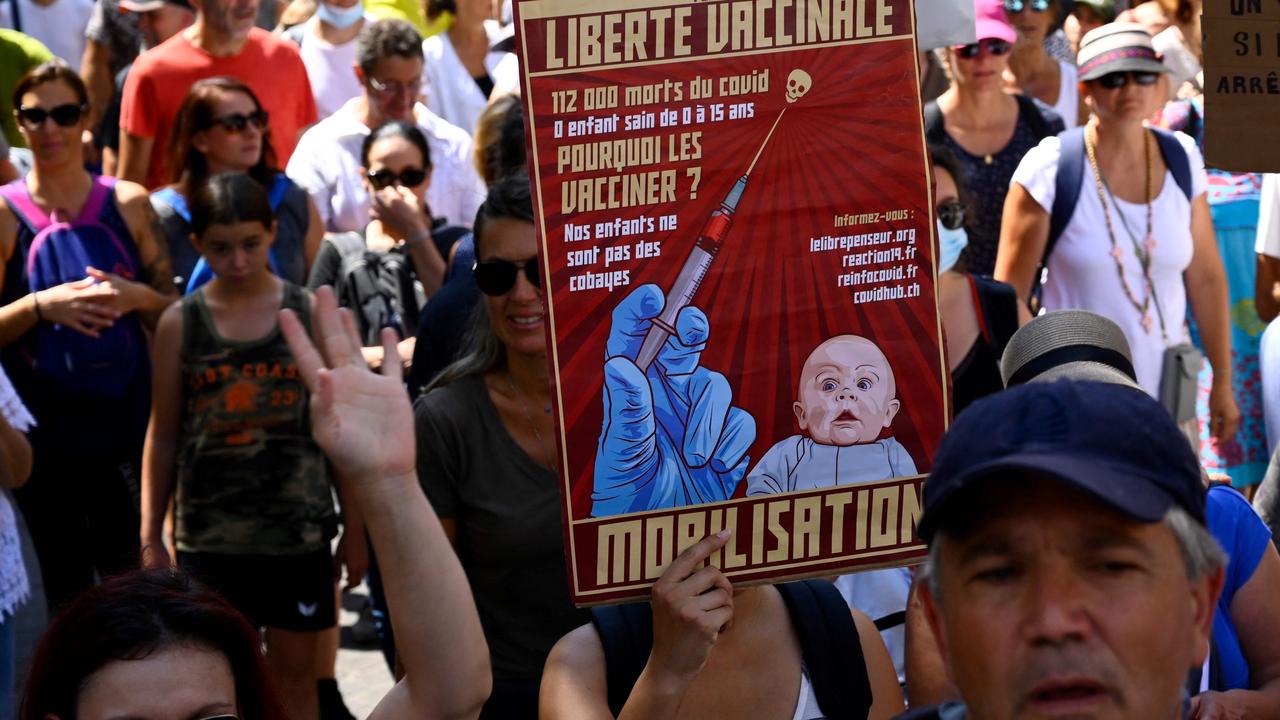
On August 19, Prime Minister Scott Morrison said this advice wasn’t far away.
“ATAGI along with their UK counterparts, is now considering the expansion of this to all 12- to 15-year-olds … if ATAGI provides that advice, planning is already well under way,” he said.
“This is a matter that we have dealt with regularly both at national cabinet in terms of the state-based systems for potential school-based vaccination programs.
“[The ATAGI approval] is not too far away is my understanding but equally we’re talking about the vaccination of our kids and I want to be very sure about the medical advice we’re getting about that.”
Professor Fiona Russell, the director of child and adolescent health at the University of Melbourne, said the majority of 12 to 15-year-olds must be vaccinated by the start of 2022.
“I would hope, depending on supply and logistics, secondary school children should all be done by the new school year at the latest,” she said.
Five to 12 year olds
Primary school aged children or under 12s in the US and the UK have not yet been included in vaccination programs, but health experts are increasingly advising they should be.
No vaccine has been approved for children five to 12 in the US, although a number of countries have either authorised vaccines for adolescents and young children or are considering them.
The CDC and the American Academy of Paediatrics have advised meanwhile that everyone in schools wear masks, particularly because “you can’t verify who is vaccinated and who isn’t”.
“I’m very concerned about schools that are not mandating mask use,” University of Chicago paediatrician Allison Bartlett said.
“I don’t have great solutions at the moment other than … our opinion about wearing masks all the time in schools where not everyone is vaccinated.”
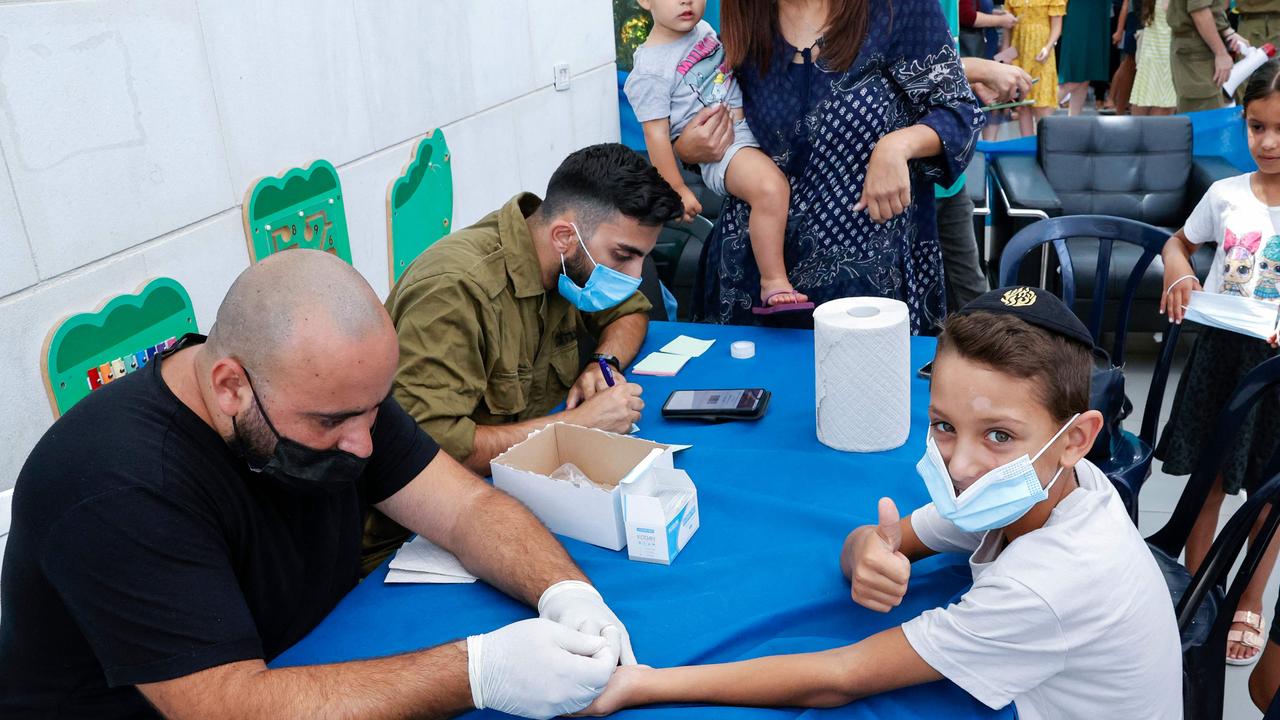
If a school doesn’t mandate masks, families should make sure their children are wearing them indoors.
“Kids do fine with masks. … they understand the rationale behind it,” Dr Bartlett said. “They’re vulnerable and want to get back to hanging out with friends. Masking will allow them to do that.”
Under sixes
Preschoolers, toddlers and babies are routinely immunised for diseases and flu.
Children aged 6 months to under 5 years can have the flu vaccine for free each year in Australia, but their qualification for Covid shots has not yet been considered.
Chicago paediatrician Allison Bartlett said it was a reasonable question to ask about young babies and toddlers who might be heading back to daycare.
“How do we protect them? This speaks to the importance of protecting the vulnerable,” Dr Bartlett said.
“Nothing we do is risk free. But having our day cares continue to do what they’re doing – teachers masking, have children two and up masking, and not mixing teachers and classrooms – are all things we still need to be doing to keep everyone safe.”
She encouraged families, friends and childcare providers to do as much outdoors as possible with very small children.
The risk with Delta, she said, is that even a vaccinated person who is feeling okay “could potentially spread and infect someone not vaccinated”.
“And that absolutely includes six-month-olds in a childcare setting,” she said.
“So I think that vaccinating and masking in schools and childcare settings is the way to go right now.”


